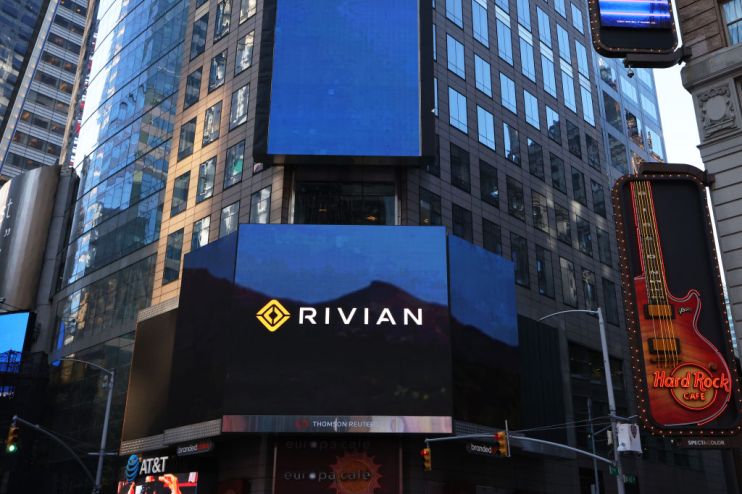Rivian: America’s next top model?

In 2020, despite a global pandemic making it more difficult for anybody that wanted to grab a beer at the end of a long work-day, Anheuser-Busch – the makers of Budweiser and a whole range of other alcoholic drinks – brought home revenues of a cool $46bn.
Listed in New York, its market cap stands at a cool $101bn. A few places above it on the market cap scorecard lies Rivian – a company whose total income in the year to end of September 2020 was precisely zero.
It makes electric pick-up truck, none of which are yet on the road, and a recent plan to develop an electric car alongside Ford has just been cancelled. What it has is 48,000 pre-orders from consumers and an order from Amazon for 100,000 electric vans.
Its market capitalisation on the same NASDAQ exchange is currently at $105bn, making it – perhaps unsurprisingly – the highest valued company without any revenue in history.
Even if the success of firms like Uber and Deliveroo has inured us to the growing gap between profitability and stock market success, Rivian’s drive to the upper ranks of the US stock market has take some by surprise.
Daniel Clarke at data and analytics firm GlobalData told City A.M. that “it is important to note that the concept of value in the stock market has shifted significantly in recent years and is increasingly contested.”
“More traditional investors scorn Tesla and Rivian’s jaw-dropping market caps because of the huge gaps between their current revenue and their valuations.”
But even by the standards of today’s stock market, Clarke said Rivian’s price remains eye-catching. “It took Tesla over 2,400 days to reach a $100bn valuation, whereas Rivian achieved this in just three.”
Others are more direct. “The valuation is ludicrous and at some point the market will realise that,” reckons CMC Markets’ Micheal Hewson.
What drove the price?
Rivian’s float and the market’s explosive reaction to it was not entirely random, as the company has some important backers on its side, including Amazon and Ford. Amazon has a 20 per cent stake in the company, while the US car maker owns 12 per cent of the Californian manufacturer.
According to Jim Saker, professor of retail management and director of the Centre for Automotive Management at Loughborough University, Rivian’s famous investors contributed in large part to its IPO.
The company is also benefitting from the US Government showing greater support towards green cars. Earlier this month, President Biden signed into law a $1.2tn infrastructure package, which includes $7.5bn that will be allocated to setting up an addition 400,000 EV charging stations.
“The Biden administration’s investment isn’t hyperbole and will have a significant impact on US electric vehicle charging supply,” Mark Boyadjis, IHS Markit’s global automotive technology lead, told Forbes.
Not everyone is convinced, though. Elon Musk took a jab at the newest competitor, tweeting on 11 November that “there have been hundreds of automotive start-ups, both electric and combustion, but Tesla is the only American car maker to reach high volume production and positive cash flow in the past 100 years.”
“I hope they’re able to achieve high production and break even cash flow. That is the true test,” he added.
And Clarke says Tesla’s share price spike is playing a part, too. “There’s also an element of FOMO in play here – investors don’t want to be caught as bystanders in case another Tesla story unfolds before their eyes.
“The valuations in play at the moment are in excess of any traditional KPIs – many established (manufacturers) have Enterprise Values at 0.5x revenues and Rivian’s is 100x 2022 revenues.”
The real question for Rivian then is not necessarily whether it’s worth the price today, but whether it will become a household name in the future. Many experts, including Saker, are trying to answer that question.
“At the moment, it’s only the early adopters who are buying electric vehicles,” he said. “When it becomes mainstream, the issue will be whether the marketplace will actually revert back to the established manufacturers [or it will head towards start-ups].”
With the established players piling billions of dollars worldwide into the development of electric vehicles, the question is whether this new upstart can justify its valuation with good old-fashioned returns.